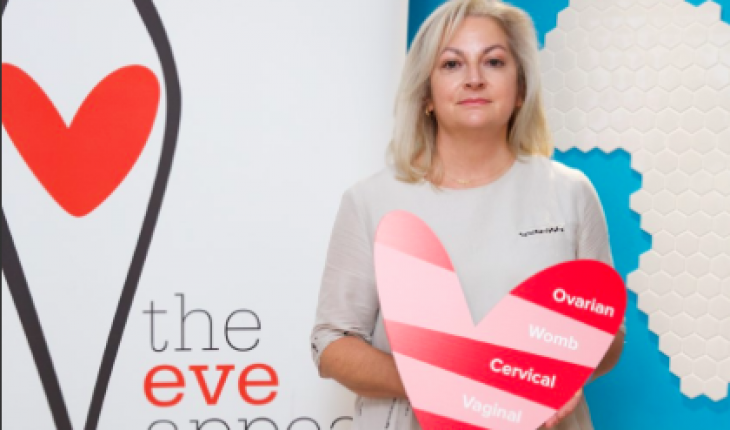I was recently at our first ever comedy night, Gynaecomedy and let me tell you, there is nothing more empowering that seeing 300 women and men chanting the word ‘vagina’. Sadly, away from this brilliant night, gynaecological health is still often a no-go conversation zone for many.
It concerns me that a stigma is still often attached to talking about the female anatomy and our gynae health.
Many women still feel embarrassed to visit a doctor with their concerns, don’t know their vagina from their vulva, and think that a smear test would detect all problems ‘down there’ when the reality is that it only detects any changes in the cervix.
Many women still feel embarrassed to visit a doctor with their concerns, don’t know their vagina from their vulva, and think that a smear test would detect all problems ‘down there’ when the reality is that it only detects any changes in the cervix.
March is Ovarian Cancer Awareness Month. As CEO for The Eve Appeal, the leading gynaecological cancer research charity, it is an important month in the health calendar. It gives us even more of an opportunity to shout loudly about one of the five gynaecological cancers that is, incorrectly often described as ‘silent’.
The biggest piece of mis-information out there is that ovarian cancer is a symptomless, silent disease.
Ovarian cancer isn’t silent. It is noisy and often painful.
It’s a women-specific cancer that’s too little known and too little talked about. Survival rates are low, few treatments available and few newer ones in the pipeline. What we often hear about is that diagnosis comes late – either because a woman hasn’t recognised the symptoms, or because her GP didn’t. This deeply worries me.
In the UK over 7,300 women are diagnosed with ovarian cancer every year and is the sixth most common cancer among women, but still awareness is low. Every two hours, every day, in the UK a woman dies from ovarian cancer. That’s 12 – mothers, daughters and friends – and it’s definitely 12 women too many.
There is often confusion over how women develop ovarian cancer. The simple answer to that is that if you are a woman and you have ovaries, you can develop ovarian cancer. Cancer certainly doesn’t care about age, race or religion. Put simply, ovarian cancer doesn’t discriminate.
That is why we are using this month to get back to basics and remind all women of the symptoms they need to keep an eye on. Knowledge is power
It is important to remember that most of the time, it isn’t ovarian cancer, but if you have been presenting any of the symptoms below, why leave it to chance?
Whilst on the subject of seeking advice, here is a gentle reminder for all those with a gynae niggle that something may not be quite right, or those who have concerns about a loved one; there’s a unique service to The Eve Appeal that’s free, confidential and staffed by a totally unembarrassable gynae nurse – Tracie and our information officer, Karen. Do get in touch – no question is too trivial and there are definitely no taboos.
Ovarian Cancer signs and symptoms
There are four main ovarian cancer symptoms that are more prevalent in women diagnosed with the condition.
- Increased abdominal size and persistent bloating that goes on longer than 3 weeks (not bloating that comes and goes)
- Persistent pelvic and abdominal pain
- Unexplained change in bowel habits
- Difficulty eating and feeling full quickly, or feeling nauseous
While most women with symptoms do present with advanced disease, this is not always the case. Sometimes, symptoms can be due to an early stage cancer. So whilst it’s key women are aware of the symptoms, we don’t want women to worry unnecessarily. Most of the time these symptoms like a bloated tummy are because of a digestive issue, stomach/diet or other problem and not due to ovarian cancer.
We would advise to always follow the ‘rule of three’. If you’ve had symptoms for three weeks or more, then visit your GP. If you’ve had to see your GP on more than three occasions for these symptoms, and haven’t been referred to a specialist, ask for a referral.
For more information, please visit www.eveappeal.org.uk
- Let’s talk about ovarian cancer - 28th February 2018







